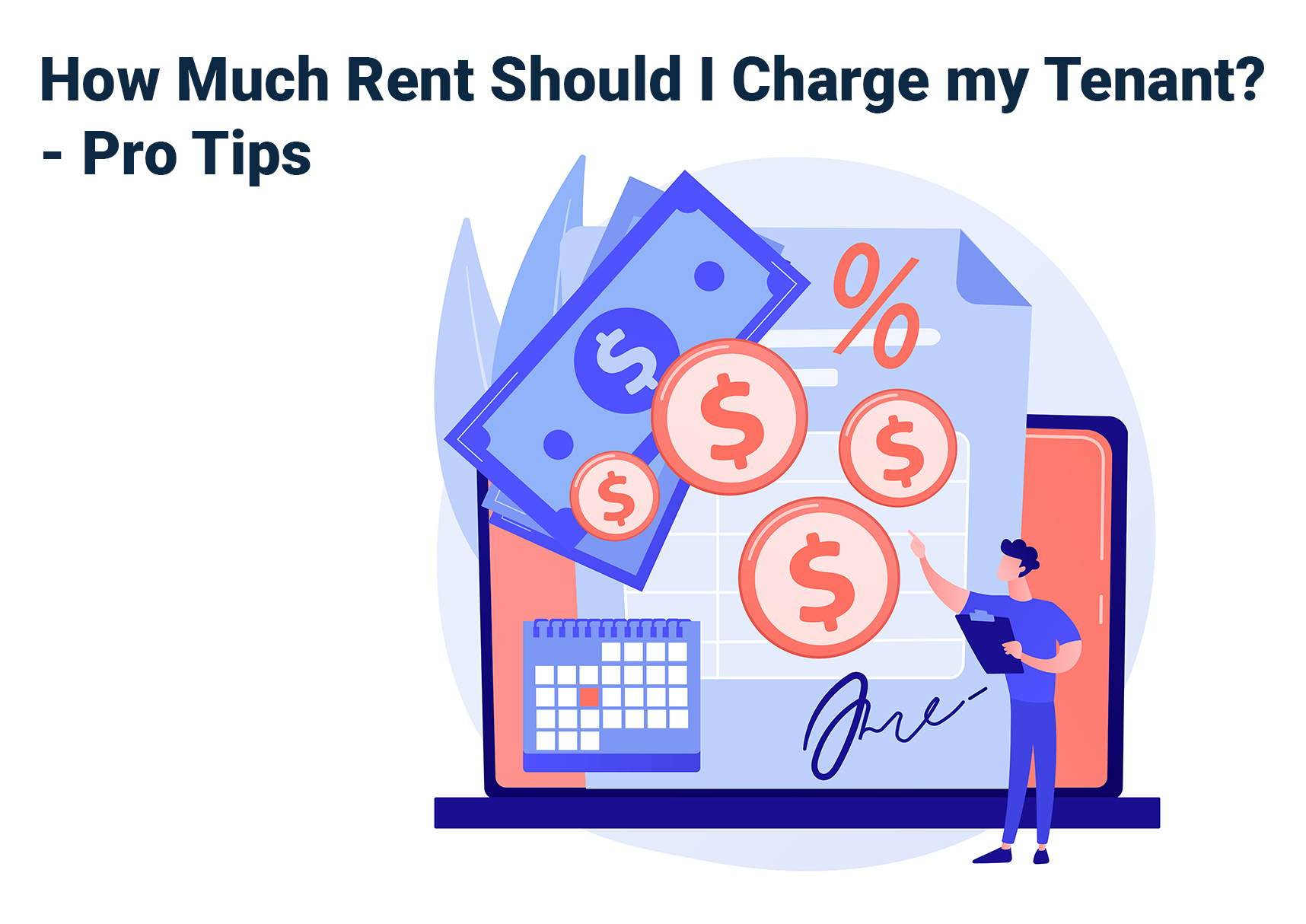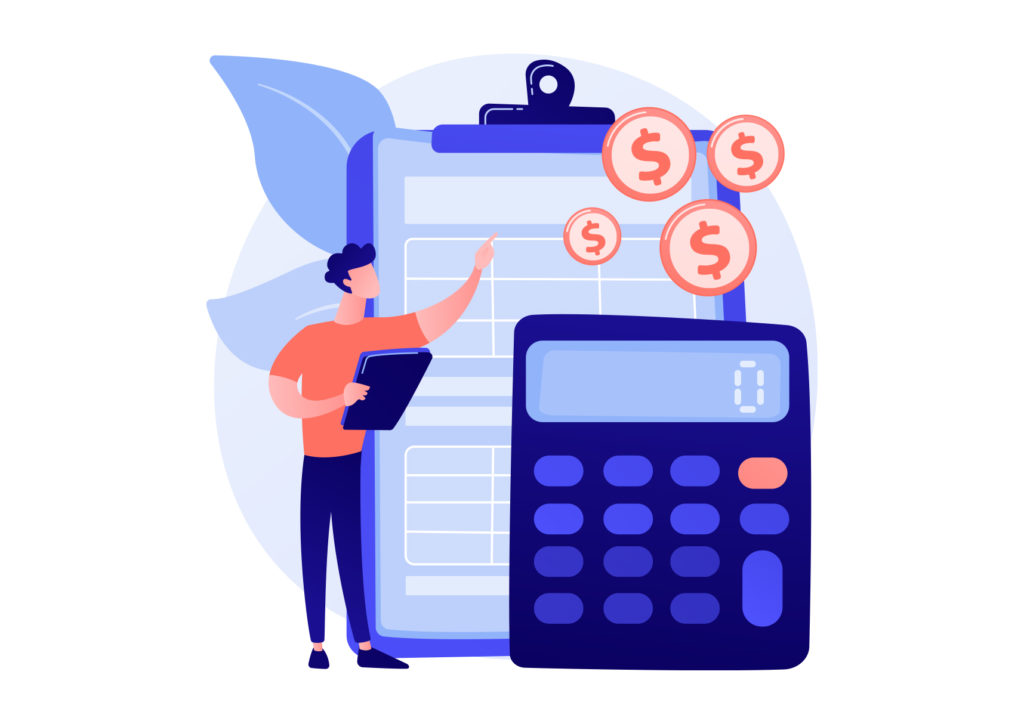How Much Rent Should I Charge my Tenant? – Pro Tips

Whether you’re a new landlord or more experienced in the rental market, answering the question how much rent should I charge can be one of the trickiest parts of owning a property.
The amount of rent you charge your tenants will have a big impact on the profitability of your property, vacancy periods and tenant demand, so it’s worth taking some time to understand the factors involved in calculating monthly rent.
In this article, we take a look at the elements that can help you to decide how much rent to charge tenants and some of the things to keep in mind when settling on a monthly rental rate.
How Much Rent Should I Charge?
One of the first things a landlord will do to calculate how much rent to charge is to use an online calculator. Online calculators will take your postcode and house number and give you an estimated rental value for your property.
Read more about how to increase the value of your property here.
While property rental calculators are helpful to get the average rental prices by postcode, it’s worth doing your own research too. Looking into factors like the property’s overall value, comparable properties, your expenses and amenities, can help you decide how much you want to charge for rent.
Factors That Impact How Much Rent you Can Charge
The actual rent you’ll be able to charge will be impacted by a number of factors, from how close the property is to public transport, schools and amenities to how appealing your property is to tenants. Here are some factors worth considering to get an idea of monthly rent:
- Comparable properties in the area
Looking into what other landlords in the area are charging can be a useful way to answer the question how much rent should I charge. When you are comparing properties, make sure they are similar to yours in terms of size, number of bedrooms and bathrooms, amenities, refurbishment and decor.
If you charge too much more than similar properties in the area you may struggle to find tenants. On the other hand, pricing too low can mean you miss out on potential profit. Analysing the market can give you a good idea of what tenants are willing to pay and what is a reasonable cost for your property.
Once you have a benchmark of what you might charge per month in rent, it’s a good idea to reach out to a few local estate agents to get their rental estimate. Estate agents will have good knowledge of the local market and reasonable figures for rental price range.
- The value of the property
The overall value of your property can give you a good idea of what you might charge for rent. The rent of a property is usually between 0.8% – 1.1% of the value of your home. For example, if your home is valued at £200,000, the rent will be between £1,600 and £2,000.
This method is affected by a number of other factors, such as location, competitiveness of the rental market, the target tenant market and whether your property is a HMO, flat or family residential property. If your property’s value is extremely high – for example, some rental homes in London are valued at over £1 million – this may not be the best way to calculate what rent you can charge.
- Demand
When answering the question how much rent should I charge, demand is another key factor to keep in mind. The amount of monthly rent you can receive may drastically change if there is high demand for properties in the area. Factors like a growing job market, student housing demand, schools and the state of the economy can all impact demand for rental property.
For example, during tough economic times, people are likely to rent for longer. Which can create more demand in the rental market. In student markets demand tends to increase just after the start of the academic year when students are looking to secure a place to live for the next academic year. When demand is high, landlords can charge a higher price. However, you’ll still need to consider factors like the condition of your property, the size and the amenities on offer.
- Expenses
Another key factor to answer the question how much rent can I charge is your expenses as a landlord. You’ll want to make sure that the estimated rental income is adequate enough. In order to cover the cost of owning a property and the cost of letting a property.
Make sure you calculate expenses like mortgage fees, insurance, maintenance, taxes, property management costs and vacancy periods. Then you should ensure the rent you charge is enough to cover these expenses while still delivering some profit.
- Amenities
The amenities your property offers can have a big impact on the amount of rent you can charge. Many amenities can boost the estimated rental value of your property. But it’s important to understand which are the most sought-after amenities.
Rent-boosting amenities can include things like large gardens, dishwashers, on-site parking, washers and dryers. It’s important to pay attention to the amenities other landlords in the area offer too. After all, these landlords are your competition for tenants.
Is it Worth Renting Out a House?
Right now in the UK, rents are on the rise. They are likely to continue to do so even if property prices fall. In fact, now is a great time to be a landlord. Especially with the supply of housing falling short of demand and record-high property prices. Meaning more people are renting for longer.
Rising living costs and a lack of supply of rental properties sparked by a buoyant sales market in the last couple of years means landlords can command higher rates across the country. The average rent price UK is currently £1,171, up more than 10% based on figures from a year ago. Every region in the UK is seeing this growth. And average room rents are also up 10% year-on-year to an average of UK £554 (excluding London).
What Fees can you charge a Tenant?
Landlords will often charge tenants one-time time fees such as application fees, maintenance fees, pet fees and rekey fees. Common charges are usually one-offs in addition to the ongoing costs of weekly to monthly rent and utilities.
 How Much do you Charge for the Average Rental?
How Much do you Charge for the Average Rental?
While the average UK rental price is currently £1,171, properties that are furnished can usually command slightly higher rent than those that are unfurnished. The actual rental price will also be impacted by the type of property. As well as tenant demand and what other landlords in the area charge for similar properties.
 What is the Maximum Deposit a Landlord can Take?
What is the Maximum Deposit a Landlord can Take?
A tenancy deposit cannot exceed more than 5 weeks’ rent. This applies as long as the rent pricing is less than £4,167 a month. It applies to students in halls of residence, short-hold tenants and students in halls of residence.
Should Rent be 30% of Gross or Net?
Best practice dictates that rent should 30% of gross pay. The 30% recommendation is a guide and will change depending on where you choose to live. But by sticking to 30%, tenants can better understand if where they live is affordable. Or if they can afford to move to a more convenient neighbourhood or to a property with better amenities.
How much rent should I charge is one of the first questions that a landlord will want to answer. Especially, when exploring the possibility of a new rental property. Demand, the amenities on offer and what other landlords in the area charge for similar property can all help you to determine the right figure. To find out more about owning a buy-to-let property, get in touch with our experts today.

